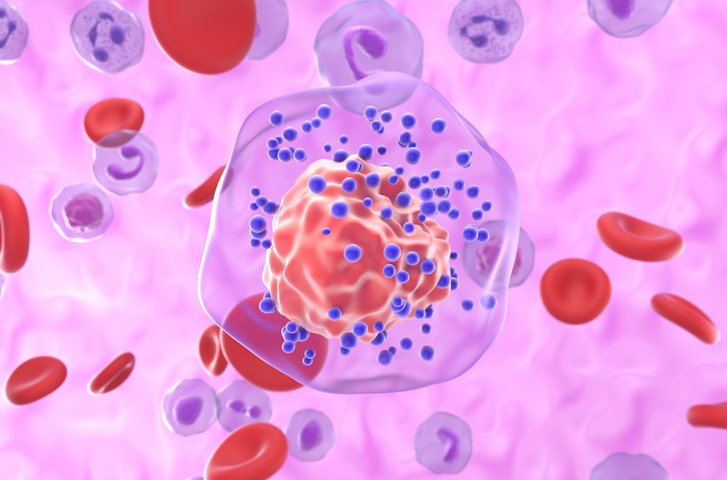
The U.S. Food and Drug Administration approved Trodelvy™ (sacituzumab govitecan-hziy) for patients with metastatic triple-negative breast cancer who have received at least two prior treatments.
The approval was based on the results from a phase I/II clinical trial that included 108 patients (median age, 56 years) with metastatic triple-negative breast cancer who had received at least two prior treatments for metastatic disease. Patients received sacituzumab govitecan 10 mg/kg body weight intravenously on days one and eight of each 21-day cycle until disease progression or unacceptable toxicity.
Response detected with sacituzumab govitecan-hziy
The overall response rate was 33.3% (n=36), including three complete responses. The median duration of response was 7.7 months. Among those who responded to sacituzumab govitecan-hziy, 55.6% maintained a response for six or more months and 16.7% maintained a response for 12 or more months.
Median progression-free survival was 5.5 months, and median overall survival was 13.0 months.
The most common adverse events associated with sacituzumab govitecan-hziy are nausea, neutropenia, diarrhea, fatigue, anemia, vomiting, alopecia, constipation, decreased appetite, rash, and abdominal pain.
The treatment has a Boxed Warning about the risk of severe neutropenia and severe diarrhea. Healthcare professionals should monitor patient’s blood cell counts periodically during treatment and consider granulocyte-colony stimulating factor therapy. Patients with diarrhea and should receive fluid, electrolytes, and supportive care medications, as needed. Sacituzumab govitecan-hziy can cause hypersensitivity reactions, including severe anaphylactic reactions. Patients should be monitored for infusion-related reactions. Patients who experience nausea or vomiting should take antiemetic preventive treatment.







 © 2025 Mashup Media, LLC, a Formedics Property. All Rights Reserved.
© 2025 Mashup Media, LLC, a Formedics Property. All Rights Reserved.